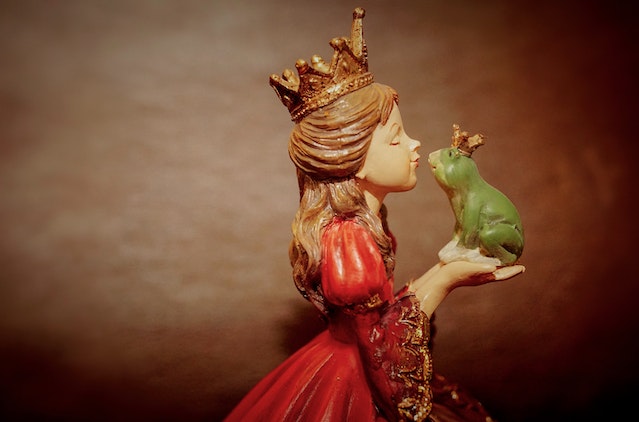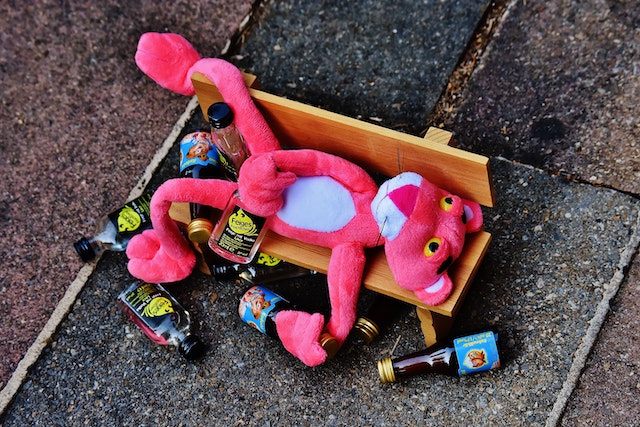Written by: Olivera Tolimir
It’s beyond me how people don’t bother with phrases when learning a new language!
Or should I say – I don’t get how someone wants to be proficient in a language but fails to memorize the idioms.
It’s a mystery to me.
Ok, you see what I did there. Playing with phrases holding similar meanings is always amusing.
Šalu na stranu (all jokes aside), did you encounter many idioms while learning Serbian language?
We use many phrases in our everyday lives. But an average Serbian couldn’t count all expressions they used during the day. It comes naturally, especially when we’re intensively experiencing emotions (which is mostly always).
So, to help you learn Serbian and speak it like a native, here’s a list of 9 Serbian idioms. Enjoy!
Learning Serbian Language’s Idioms 1: Kad na vrbi rodi grožđe
Literal translation: When grapes grow on a willow tree.
Meaning: Never.
Example: Jovan će ti pozajmiti novac kad na vrbi rodi grožđe.
Translation: Jovan will never lend you money.
Explanation: This one is pretty self-explanatory. Just like grapes will never start growing on a willow tree, a particular situation will never happen. It seems Jovan is a bit stingy!

Learning Serbian Language’s Idioms 2: Lije kao iz kabla
Literal translation: It’s pouring like it’s coming from a container.
Meaning: It’s raining cats and dogs. / The rain is pouring.
Example: Nećemo sada u grad. Lije kao iz kabla!
Translation: We won’t go to the city now. It’s raining cats and dogs!
Explanation: Kabao is a Serbian word for a big wooden container used for washing clothes in the past. So, when it rains heavily, it seems like someone is pouring water directly from a container onto our heads.
Learning Serbian Language’s Idioms 3: Mešati babe i žabe
Literal translation: Mixing grandmas and frogs.
Meaning: apples and oranges; comparing two incomparable things
Example: Ne možeš da govoriš o daljini u miljama, a o brzini u kilometrima na čas! Mešaš babe i žabe!
Translation: You can’t talk about distance in miles but use kilometers per hour for speed. It’s apples and oranges!
Explanation: We use this expression when explaining a comparison is unfair because two items are incomparable. Grandmas and frogs are taken as examples since the words babe and žabe rhyme. Also, you have to admit it’s funnier than apples and oranges!

Learning Serbian Language’s Idioms 4: Lupati kao Maksim po diviziji
Literal translation: throbbing (hitting) like Maxim over the division
Meaning: speaking utter nonsense
Example: Marko nam je juče pričao kako je 10 devojaka zaljubljeno u njega. Lupa kao Maksim po diviziji.
Translation: Marko told us yesterday that ten girls are in love with him. He’s speaking utter nonsense.
Explanation: The English translation might not make sense, but let’s break down the Serbian sentence and see who that Maxim is and what he’s doing.
First, lupati is a Serbian verb that can mean throbbing, knocking, or hitting. We also use it in the phrase lupati gluposti, which means to speak nonsense.
Although it may sound like that, Maxim is not a person! It’s the name of a machine gun from WWI. And we know that divizija (division) is a large military formation.
So, when we say lupa kao Maksim po diviziji, we refer to someone constantly shouting out stupid and false stuff like the machine gun was non-stop hitting in WWI!
Learning Serbian Language’s Idioms 5: Izmisliti toplu vodu.
Literal translation: To invent warm water.
Meaning: to reinvent the wheel; to work on a solution when the solution to the problem already exists.
Example: Nemoj da izmišljaš toplu vodu, nego uradi zadatak onako kako je profesor pokazao!
Translation: Don’t reinvent the wheel, but do the task as the professor demonstrated!
Explanation: Since everyone knows what warm water is and how to get it, reinventing it shows the absurdity of someone looking for a new answer when the old one is well-known.

Learning Serbian Language’s Idioms 6: Kruži kao kiša oko Kragujevca
Literal translation: circling like rain around Kragujevac
Meaning: beating around the bush; avoiding the point of the story
Example: Hajde, Jelena, reci šta ti treba! Prestani da kružiš kao kiša oko Kragujevca!
Translation: Come on, Jelena, tell me what you need! Stop beating around the bush!
Explanation: Kragujevac is a town in Serbia. The statistical data says that during the 1960s every rainstorm tended to avoid Kragujevac. That’s how the saying was born and, fortunately, stayed in the language. You have to admit it’s pretty funny!
Learning Serbian Language’s Idioms 7: Baciti oko na nekoga
Literal translation: to throw the eye onto someone
Meaning: to catch someone’s eye; to attract someone’s attention
Example: Dana je bacila oko na Milana. Baš joj se svideo.
Translation: Milan caught Dana’s eye. She liked him a lot.
Explanation: The logic is similar to the English saying, although Serbs seem to be more active love pursuers. Apparently, a Serb will deliberately throw their eye on you if they like you. They won’t wait for you to catch it!
Learning Serbian Language’s Idioms 8: Pijan kao majka
Literal translation: drunk like a mother
Meaning: very drunk, completely drunk
Example: Darko se previše zabavio na svadbi. Već u pet sati je bio pijan kao majka.
Translation: Darko had too much fun at the wedding. He was already completely drunk at five o’clock!
Explanation: Don’t worry, Serbian moms aren’t alcoholics!
There are two explanations for this phrase.
The first one says that people used to give birthing women alcohol so they wouldn’t be in so much pain. Yes, it’s a scandalous concept for us today. But they didn’t know how else to help them back in time.
The other theory explains the saying is about mother Earth and the fact that dry land will “drink” as much water as it can once it rains.

Learning Serbian Language’s Idioms 9: Naše gore list
Literal translation: a leaf from our woods (mountain)
Meaning: a compatriot, fellow countryman
Example: Naučnik Mihajlo Pupin je naše gore list!
Translation: The scientist Mihajlo Pupin is our compatriot!
Explanation: As you probably know, the Serbian diaspora (people from Serbia living abroad) is large. So, any time a Serb living in another country meets another Serb, they’ll be glad and sometimes say, “Ti si naše gore list!”
This phrase is also commonly used when we want to brag about successful scientists, artists, and athletes with Serbian origins.
Did you encounter any of these phrases while learning Serbian language?
Which one do you find the most interesting?
To learn many more Serbian expressions, choose one of our awesome Serbian teachers and book an individual class here!



